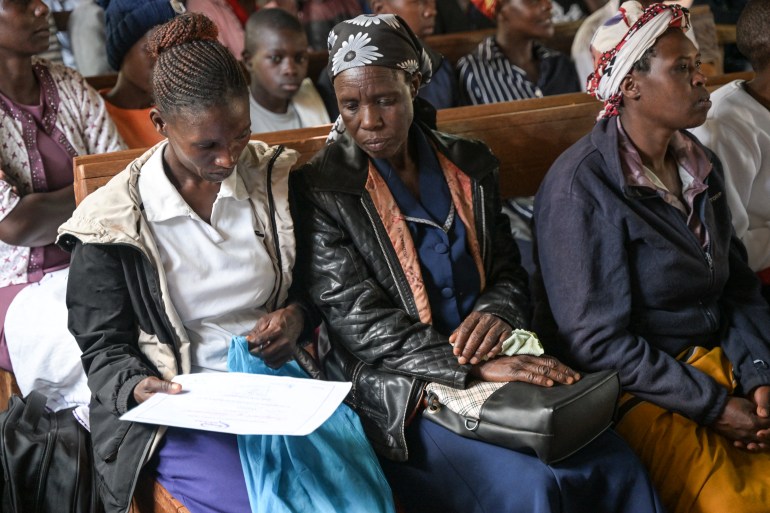Report highlights so-called ‘vacation cutting’ among families in the West taking girls to countries of origin for FGM.
The United Nations has warned that the global fight against female genital mutilation (FGM) is being undermined by families crossing borders to have girls undergo the procedure.
A report from the UN human rights office, published on Friday, found that FGM continues across the world despite bans, largely owing to the “clandestine” practice of taking girls abroad to countries where the practice is legal or where laws criminalising it are not enforced.
“Female genital mutilation is part of a continuum of gender-based violence and has no place in a human rights-respecting universe,” UN rights chief Volker Turk said in a statement. Gender stereotypes and patriarchal norms anchoring and perpetuating the practice needed to be uprooted, he added.
The office called for concerted global action to tackle cross-border and transnational FGM, zeroing in on so-called “vacation cutting”, particularly prevalent among families in Europe and North America, who take their daughters to their countries of origin to undergo the procedure during school holidays.
Though most countries in Africa have criminalised the practice, the report said some were serving as “transnational FGM hubs”. In some cases, the cutters are moving across borders to carry out the procedure.
Turk called for countries to address the root causes and the consequences of FGM by harmonising legal and policy frameworks and enforcing them.
FGM is banned in more than 70 countries, of which at least 35 are in sub-Saharan Africa, according to the World Bank.
The Gambia – where government figures show that 73 percent of women aged between 15 and 49 have undergone genital mutilation – could be the first country to lift a ban.
The UN children’s agency UNICEF defines FGM as “the partial or total removal of the female external genitalia or other injury to the female genital organs for non-medical reasons”.
It can lead to serious health problems, including infections, bleeding, infertility and complications in childbirth, and impairs sexual pleasure.
The report said the exact number of girls who have been subjected to cross-border or transnational female genital mutilation remained unknown due to its clandestine nature.
According to UNICEF, more than 230 million girls and women have been subjected to genital mutilation, including more than 144 million in Africa and more than 80 million in Asia.
“If the practice continues at the current pace, an estimated 68 million girls will undergo FGM between 2015 and 2030,” the report said.
Read More: World News | Entertainment News | Celeb News
Al Jazeera
